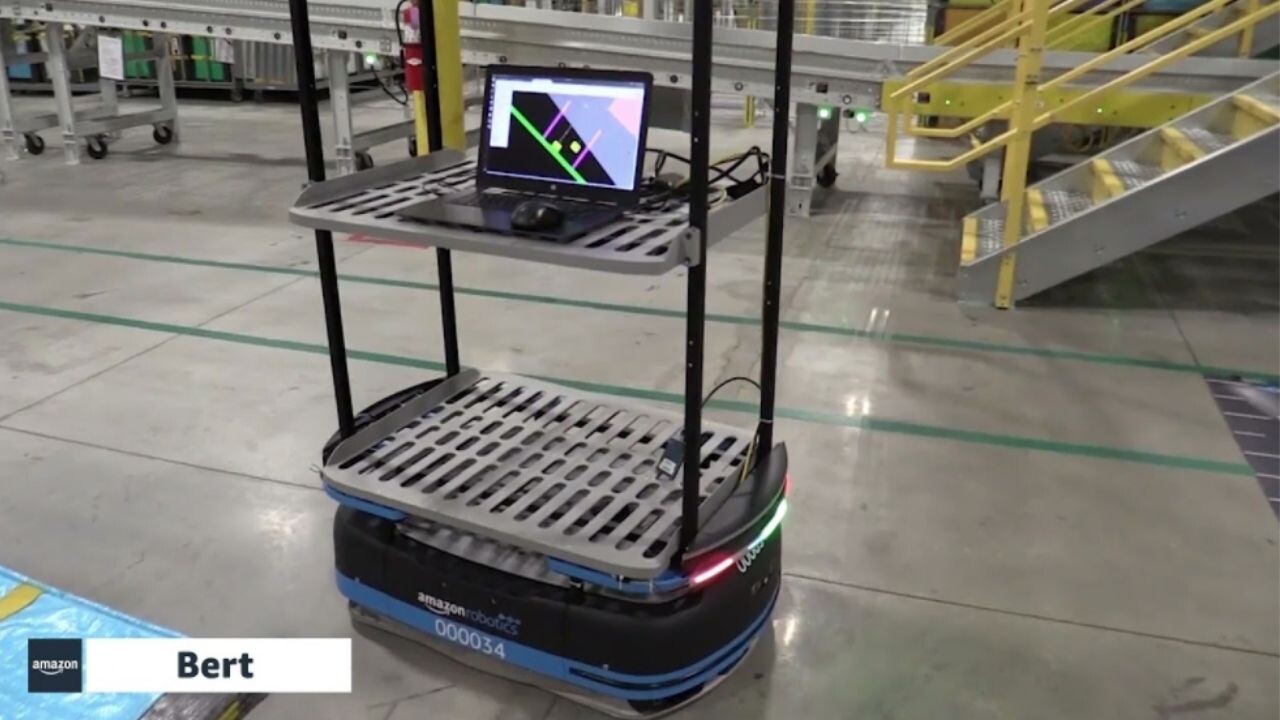
Weeks after a study revealed that Amazon warehouse workers are injured at higher rates than staff at rival firms, the company has revealed it’s testing new robots designed to improve employee safety.
The e-commerce giant has ingratiatingly named two of the bots after Sesame Street’s Bert and Ernie.
Bert is an Autonomous Mobile Robot (AMR) that’s built to navigate through Amazon facilities. In the future, the company envisions the bot carrying large and heavy items or carts across a site, reducing the strain on its human coworkers.
Ernie, meanwhile, is a workstation system that removes totes from robotic shelves and then deliveries them to employees.
“The innovation with a robot like Ernie is interesting because while it doesn’t make the process go any faster, we’re optimistic, based on our testing, it can make our facilities safer for employees,” said Kevin Keck worldwide director of Advanced Technology at Amazon.
The duo may one day be joined at work by another pair of robot colleagues: Scooter and Kermit, which transport carts across facilities.
Amazon said it plans to deploy Scooter in at least one Amazon facility this year, and introduce Kermit in a minimum of 12 North American sites.
[Read: Why entrepreneurship in emerging markets matters]
The robots were unveiled amid growing concerns about worker safety at Amazon. Earlier this month, a union-backed report on safety data found serious injury rates at the company were almost 80% higher than the rest of the industry.
Amazon has previously been accused of deceiving the public about the rising injury rates in its warehouses. But in recent months, the company has begun to publicly acknowledge the problem.
In April, Jeff Bezos revealed another system designed to improve worker safety: an algorithm that rotates staff around tasks that use different body parts.
These initiatives are unlikely to discourage accusations that Amazon treats workers like robots. But hopefully, the systems can provide some support for their overworked human colleagues — and don’t end up replacing them.
Greetings Humanoids! Did you know we have a newsletter all about AI? You can subscribe to it right here.
Get the TNW newsletter
Get the most important tech news in your inbox each week.




